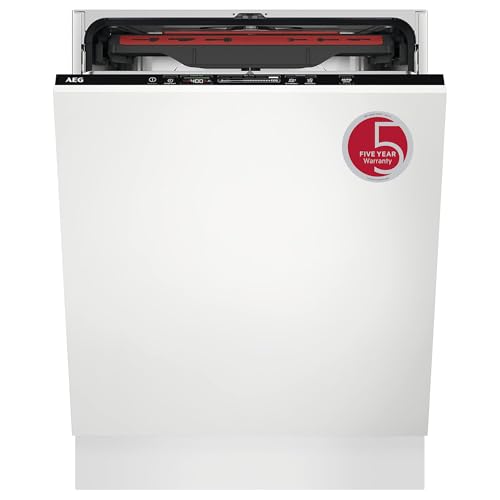




Do you have rust stains on your tiles that just won’t go away? Worry not, because we have the solution for you! Rust stains can be stubborn and unsightly, but with the right methods and techniques, you can easily remove them and restore the beauty of your tiles.
One of the best ways to remove rust from tiles is by using a mixture of vinegar and baking soda. The acidic nature of vinegar helps to break down the rust, while the abrasive properties of baking soda help to scrub it away. Simply make a paste using equal parts vinegar and baking soda, apply it to the affected area, and let it sit for a few minutes. Then, scrub the area using a brush or sponge and rinse with water. Repeat this process if necessary until the rust stains are completely gone.
If the vinegar and baking soda method doesn’t work, you can try using a commercial rust remover. There are many rust removers available in the market that are specifically designed to remove rust stains from various surfaces, including tiles. Just make sure to read the instructions carefully and follow them accordingly. Remember to always wear gloves and protective eyewear when using chemical cleaners.
Expert Tip: Prevention is better than cure! To avoid future rust stains on your tiles, make sure to keep them dry and clean. Wipe away any spilled liquids or moisture immediately and avoid leaving wet objects or containers on your tiles for extended periods of time. Regularly cleaning and maintaining your tiles will also help prevent the build-up of rust.
Top RatedECOPROTEC Rust Stain Remover for StoneFast-acting rust stain cleaner for stone surfaces.This powerful rust stain remover works in just 15 minutes, effectively erasing stains from a variety of stone surfaces, including marble and granite. Its non-acidic, water-based formula makes it safe for delicate applications.
Another effective method to remove rust from tiles is by using lemon juice and salt. The citric acid in lemon juice helps to dissolve the rust, while the abrasive properties of salt aid in scrubbing it away. Mix lemon juice and salt to form a paste, apply it to the rust stains, and let it sit for a while. Then, scrub the area with a brush or sponge and rinse with water. This natural remedy is not only effective but also environmentally friendly.
In conclusion, rust stains on tiles can be a nuisance, but they can be easily removed with the right techniques. Whether you choose to use a homemade solution like vinegar and baking soda or a commercial rust remover, always remember to test it on a small, inconspicuous area first to ensure it doesn’t damage or discolor your tiles. With a little patience and effort, you can say goodbye to those stubborn rust stains and enjoy clean, pristine tiles once again!
How to Remove Rust from Tiles: Expert Advice
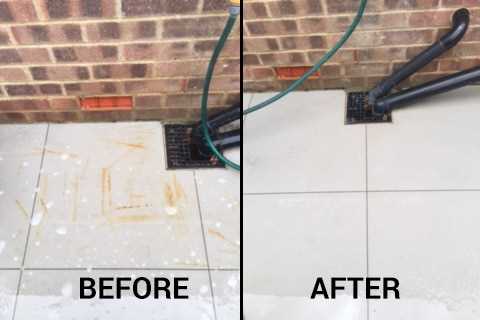
1. Lemon Juice and Salt
Mix equal parts lemon juice and salt to create a paste.
Apply the paste to the rusted area and let it sit for 15-30 minutes.
Gently scrub the area with a soft brush or sponge.
Rinse the tiles with water to remove any residue.
2. Vinegar
Soak a cloth or sponge in white vinegar.
Place the vinegar-soaked cloth or sponge on the rusted area and let it sit for 15-30 minutes.
Gently scrub the area with the vinegar-soaked cloth or sponge.
Rinse the tiles with water to remove any residue.
3. Baking Soda and Water
Mix baking soda and water to create a paste.
Apply the paste to the rusted area and let it sit for 15-30 minutes.
Gently scrub the area with a soft brush or sponge.
Rinse the tiles with water to remove any residue.
4. Commercial Rust Remover
Follow the instructions on the commercial rust remover product.
Apply the product to the rusted area and let it sit for the recommended amount of time.
Gently scrub the area with a soft brush or sponge.
Rinse the tiles with water to remove any residue.
5. Prevention Tips
- Regularly clean and dry the tiles to prevent rust from forming.
- Avoid leaving metal items, such as shaving cream cans or soap dishes, on the tiles for extended periods of time.
- Consider using rust-resistant coatings or sealants on the tiles.
Conclusion
Removing rust from tiles can be done using natural ingredients like lemon juice and vinegar, or commercial rust remover products. It’s important to follow the instructions for each method and gently scrub the rusted area to avoid damaging the tiles. Additionally, taking preventive measures can help keep rust from forming on the tiles in the first place.
Top Techniques for Rust Removal from Tiles
1. Vinegar
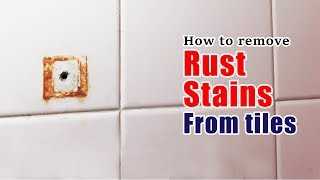
Vinegar is an effective natural remedy for rust removal from tiles. Simply pour some white vinegar onto a soft cloth or sponge and rub it onto the rusty area. Let it sit for a few minutes, then scrub the area with a brush. Rinse with water and repeat if necessary. Vinegar’s acetic acid helps dissolve the rust, making it easier to remove.
2. Lemon Juice
Another natural option for rust removal is lemon juice. Squeeze fresh lemon juice onto a cloth or sponge and apply it to the rusted tiles. Let it sit for a few minutes, then scrub the area with a brush. Lemon juice contains citric acid, which can help break down rust stains. Rinse with water and repeat the process as needed.
3. Baking Soda
Baking soda is a common household ingredient that can also be used to remove rust from tiles. Create a paste by mixing baking soda with a small amount of water. Apply the paste to the rusted area and let it sit for about 15 minutes. Scrub the surface with a brush, then rinse with water. Baking soda’s abrasive properties combined with its ability to neutralize acids can help lift and dissolve rust stains.
4. Rust Remover Product
If natural methods are not effective, consider using a commercial rust remover product specifically designed for tiles. Follow the instructions on the product’s packaging for best results. Remember to test the product on a small, inconspicuous area first to ensure it does not cause any damage or discoloration to your tiles.
5. Preventive Measures
To prevent rust from forming on your tiles in the future, you can apply a sealant or wax to create a protective layer. This will make it easier to clean any rust spots that do occur. Additionally, avoid leaving wet or damp items on the tiles for extended periods as moisture can contribute to rust formation.
- Try one of the natural remedies mentioned above, such as vinegar or lemon juice, to remove rust from tiles.
- If natural methods do not work, use a commercial rust remover product specifically designed for tiles.
- Consider applying a sealant or wax to prevent future rust formation on your tiles.
- Avoid leaving wet or damp items on the tiles for extended periods as this can contribute to rust.
Effective Products for Rust Stain Removal on Tiles
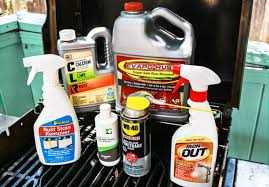
When it comes to removing rust stains from tiles, there are several effective products available on the market. These products are specially formulated to tackle rust stains and can help restore the appearance of your tiles. Here are some of the top products to consider:
1. Rust-Oleum Rust Remover Spray
- Effectiveness: This spray is known for its powerful rust-fighting capabilities.
- Application: Simply spray the product onto the rust stain and let it sit for a few minutes before scrubbing with a brush.
- Benefits: It works quickly and effectively to remove rust stains from tiles.
2. CLR Calcium, Lime, and Rust Remover
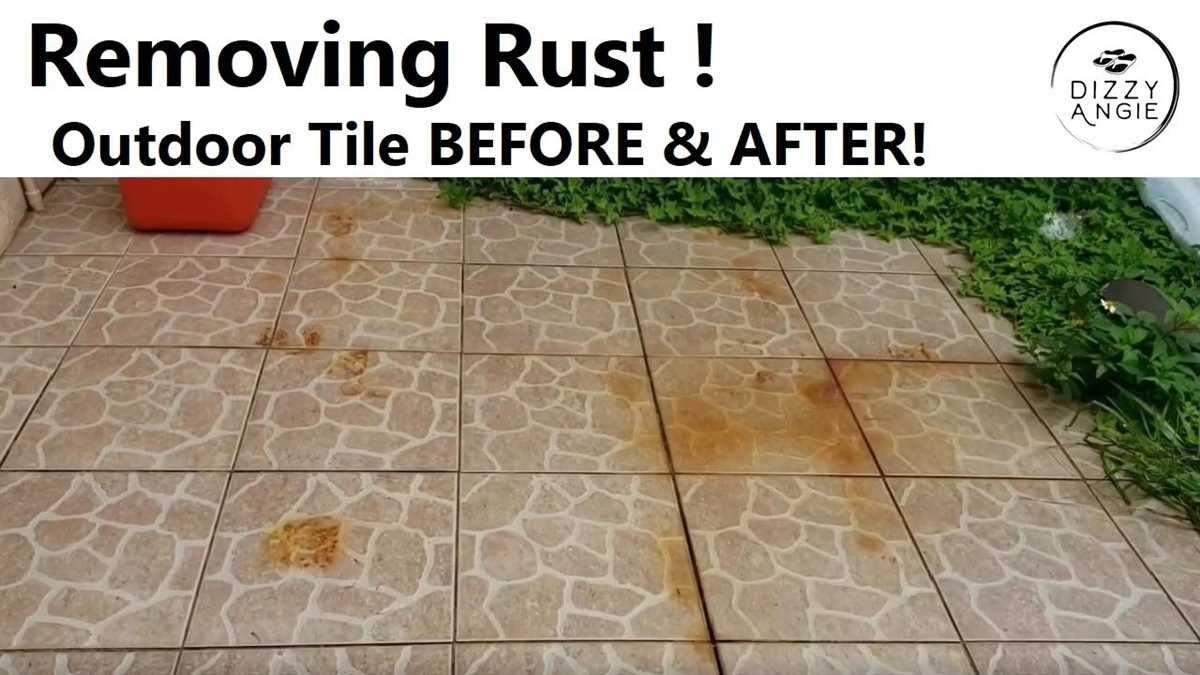
- Effectiveness: CLR is a popular choice for rust stain removal due to its strong and fast-acting formula.
- Application: Apply the product directly to the rust stain and let it sit for a few minutes. Scrub the stain with a brush and rinse thoroughly.
- Benefits: CLR is versatile and can be used on a variety of surfaces, including tiles.
3. Bar Keepers Friend Cleanser
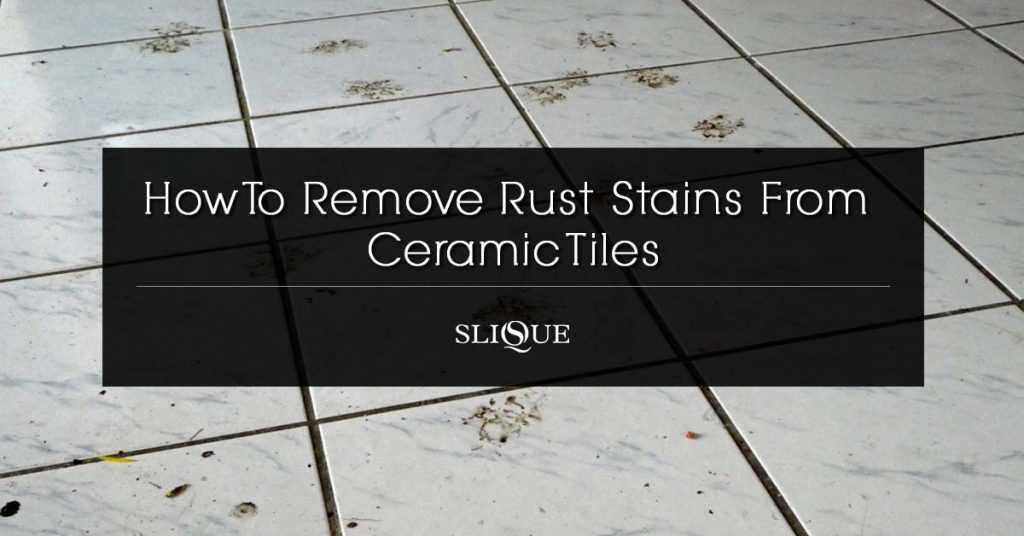
- Effectiveness: This cleanser is known for its ability to remove tough stains, including rust.
- Application: Apply the cleanser to a damp cloth or sponge and gently scrub the rust stain. Rinse thoroughly after cleaning.
- Benefits: Bar Keepers Friend is a non-abrasive cleaner that is safe to use on tiles.
4. Lime-A-Way Bathroom Cleaner
- Effectiveness: This bathroom cleaner is specially formulated to remove rust stains.
- Application: Spray the product directly onto the rust stain and let it sit for a few minutes. Scrub the stain with a brush and rinse thoroughly.
- Benefits: Lime-A-Way is a versatile cleaner that can be used on a variety of bathroom surfaces, including tiles.
Before using any of these products, it’s important to read and follow the instructions provided by the manufacturer. It’s also a good idea to test the product on a small, inconspicuous area of the tile before applying it to the entire stain. With the right product and a little elbow grease, you can effectively remove rust stains from your tiles and restore their original beauty.
Prevention Tips to Keep Tiles Rust-Free
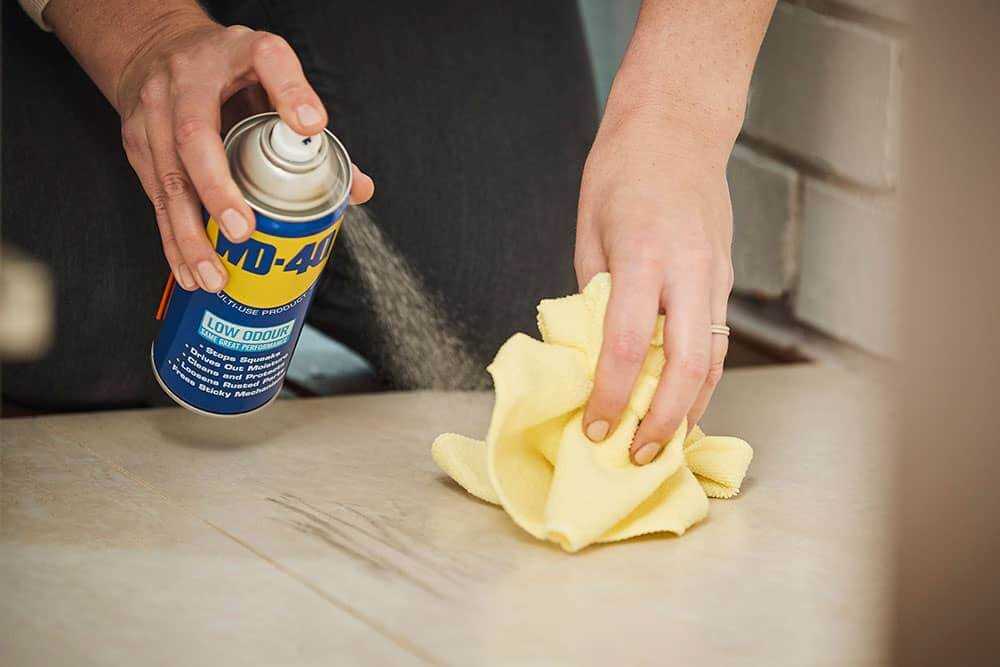
Rust on tiles can be unsightly and difficult to remove. To avoid the hassle and keep your tiles rust-free, follow these prevention tips:
1. Use Rust-Resistant Materials
When choosing tiles for your space, opt for ones made from rust-resistant materials such as stainless steel or porcelain. These materials are less likely to develop rust, ensuring the longevity and durability of your tiles.
2. Seal Tile Grout
Rust often forms in the grout lines between tiles. To prevent this, make sure to regularly seal the grout lines using a grout sealer. This will create a protective barrier that prevents moisture and rust from penetrating the grout.
3. Keep Tiles Dry
Rust thrives in moist environments, so it’s important to keep your tiles dry. After showers or any water-related activities, wipe down the tiles with a clean, dry cloth. This will prevent water from accumulating and causing rust to develop.
4. Clean Regularly
Maintaining a regular cleaning routine is crucial in preventing rust on tiles. Use a mild, non-abrasive cleaner to wipe down your tiles and grout lines regularly. This will help remove any dirt or debris that could promote rust formation.
5. Address Leaks Immediately
If you notice any leaks or water damage in your bathroom or kitchen, it’s essential to address them immediately. Water leaks can lead to moisture buildup, which creates an ideal environment for rust to form. Fix any leaks promptly to prevent rust from damaging your tiles.
6. Use Rust-Inhibiting Products
Consider using rust-inhibiting products such as rust-resistant coatings or sprays. These products can be applied to your tiles and grout lines to provide an extra layer of protection against rust formation.
7. Avoid Harsh Chemicals
When cleaning your tiles, avoid using harsh chemical cleaners that can cause damage and promote rust. Opt for mild, non-abrasive cleaners instead to protect the integrity of your tiles.
By following these prevention tips, you can keep your tiles rust-free and maintain their beauty and functionality for years to come.
Final Thoughts: Maintaining Rust-Free Tiles
Regular Cleaning
Maintaining rust-free tiles requires regular cleaning. Make sure to clean your tiles at least once a week using a mild cleaning solution and a soft brush. This will help remove any dirt or grime that may accumulate on the surface and prevent rust from forming.
Keep the Tiles Dry
One common cause of rust on tiles is moisture. To prevent rust from forming, it’s important to keep the tiles dry. After cleaning your tiles, make sure to thoroughly dry them with a clean towel or cloth. Additionally, try to keep the bathroom well-ventilated to prevent excess moisture buildup.
Avoid using Harsh Chemicals
Using harsh chemicals on the tiles can damage their surface and make them more prone to rusting. Avoid using acidic cleaners or abrasive materials that can scratch the tiles. Instead, opt for mild cleaning solutions that are specifically designed for tile surfaces.
Addressing Rust In a Timely Manner
If you notice any signs of rust on your tiles, it’s important to address the issue in a timely manner. Use a rust remover specifically designed for tiles, following the instructions on the product. Scrub gently with a soft brush to remove the rust, then rinse thoroughly with water. Once the rust is removed, make sure to dry the tiles properly to prevent further rusting.
Regular Maintenance and Inspection
To ensure that your tiles remain rust-free, it’s important to regularly inspect them for any signs of damage or rust. By catching any issues early on, you can address them before they worsen. Additionally, consider applying a sealant to the tiles to provide an extra layer of protection against rust.
Conclusion
Maintaining rust-free tiles requires regular cleaning, keeping the tiles dry, avoiding harsh chemicals, addressing rust in a timely manner, and regular maintenance and inspection. By following these tips, you can keep your tiles looking new and rust-free for a long time to come.
FAQ
What are some effective ways to remove rust from tiles?
There are several effective ways to remove rust from tiles. One method is to make a paste using baking soda and water and apply it to the rusted areas. Leave it on for a few hours or overnight, then scrub with a soft brush and rinse off. Another method is to use lemon juice or vinegar directly on the rust stains, letting it sit for a while before scrubbing and rinsing. If these methods don’t work, you can try using a commercial rust remover specifically designed for tiles.
Can I use bleach to remove rust stains from tiles?
Bleach can be effective in removing rust stains from tiles, but it should be used with caution. It is important to dilute the bleach with water according to the instructions on the bottle, as using undiluted bleach can damage the tiles or cause discolouration. Additionally, it is recommended to test a small, inconspicuous area of the tiles first to ensure that the bleach does not have any adverse effects.
Are there any natural remedies to remove rust from tiles?
Yes, there are several natural remedies that can help remove rust from tiles. Lemon juice and vinegar are often used as natural rust removers. Simply apply either lemon juice or vinegar directly to the rust stains, let it sit for a while, then scrub and rinse. Baking soda mixed with water to form a paste is another effective natural remedy. Apply the paste to the rusted areas, leave it on for a few hours or overnight, then scrub and rinse.
What should I do if the rust stains on my tiles are stubborn and won’t come off?
If the rust stains on your tiles are stubborn and won’t come off with the usual methods, you may need to try a more aggressive approach. One option is to use a commercial rust remover that is specifically designed for tiles. Be sure to follow the instructions on the product carefully and test it on a small area first to ensure it does not damage or discolour the tiles. If all else fails, you may need to consider replacing the affected tiles.

